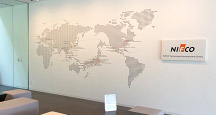Environmental Management
We are committed to building a sustainable society and reducing environmental impacts through EMS operations and collaboration across our supply chain, in line with our environmental policy.
Global Warming Initiatives
We advance initiatives toward achieving carbon neutrality by 2050, centered on decarbonization and the development of environmentally conscious products.
Climate Scenario Analysis
We assess climate-related risks and opportunities and outline our framework and initiatives for achieving carbon neutrality by 2050.
Contributing to a Recycling - Oriented Society
We work to reduce environmental impacts and realize a sustainable society through zero-waste efforts, resource circulation, and water resource conservation.








